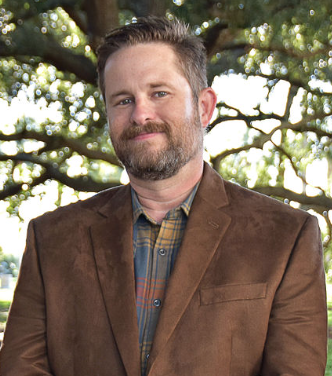
Neuropsychological assessments provide an understanding of how your brain is functioning right now, and its influence on your behavior so that you may understand short and long-term outcomes, get recommendations and be guided through specific interventions.
ABOUT US

W. Howard Buddin Jr., Ph.D.
Neuropsychologist / Licensed Clinical Psychologist
Dr. Buddin is a Clinical Neuropsychologist providing psychological evaluations for children and adults. He has worked in a wide variety of healthcare settings, including the Medical University of SC, Miami Children’s Hospital and outpatient clinics in South Carolina, Florida and Kansas. In 2014, he founded SC Neuro as an independent practice. He earned a Ph.D. in Clinical Psychology from Nova Southeastern University. His pre-doctoral internship at the South Florida Consortium included rotations at both an outpatient clinic and the Miami Children’s Hospital – Dan Marino Center. Dr. Buddin completed a formal, two–year neuropsychology fellowship at the University of Kansas School of Medicine – Wichita. You can review his Curiculum Vitae to learn more about his education, training, and research.
SERVICES
Neuropsychological Assessment
What is a Neuropsychological Evaluation?
A neuropsychological evaluation is a process used to determine the relationship between your brain and behavior. It typically consists of three phases – interview, assessment, and feedback – and is used to answer any number of questions about past, present and future brain functioning. Some common questions and concerns are:
- “I had a head injury in a car accident and now I can’t focus or remember things. What’s going on, and will I get better?”
- “I feel like I’m losing my memory, and my father had Alzheimer’s. Does this mean I have Alzheimer’s, too?”
- “Our son’s grades have really taken a nosedive this year, but he’s always been a good student. We’re concerned because his teachers say he might have ADHD.”
Assessment
The assessment portion is conducted with either a neuropsychologist or a technician that is trained and supervised by the neuropsychologist. During this phase, a series of standardized tests are given to determine the nature of your presenting complaint. These tests measure various types of brain functions, including:
- Intelligence
- Attention and concentration
- Learning and memory
- Problem solving and planning
- Visuospatial functions
- Language functions
- Functional abilities
- Sensory/perceptual functions
- Motor functions
- Other complex cognitive abilities
How Are Neuropsychological Evaluations Used?
Detection of Injury: Negative Imaging
There are many causes and outcomes of brain impairment. The source of impairment cannot always be detected on common imaging studies, like Computerized Tomography (sometimes referred to as a “CT” or “cat” scan) or Magnetic Resonance Imaging (MRI). A neuropsychological evaluation is extremely useful in these situations, as many neuropsychological tests are highly sensitive to very subtle changes in brain functioning that would be otherwise missed.
Description of Injury: Positive Imaging
Neuropsychological assessment is also useful when structural abnormalities are found on imaging studies. The results of an evaluation conducted by a qualified neuropsychologist can supplement findings by determining the nature and degree of impairment as it relates to the physical abnormalities.
Evaluation of Other Impairments
A neuropsychologist often performs an assessment of other areas of functioning, such as academic skills or emotional functioning, even when no biological causes are suspected. An evaluation almost always is tailored to answer referral questions, and is further refined based on information obtained during an initial interview.
Guidance: Present and Future
The results of a neuropsychological evaluation provide an objective evaluation of current cognitive functioning. Further information can be obtained about prognosis for both short- and long-term outcomes, and can yield recommendations, guiding specific interventions.
Psychological Assessment
Assessments for various conditions ranging from Attention Deficit/Hyperactivity Disorder to psychopathology that impairs daily functioning.
Treatment
We work with your healthcare team to communicate clearly and quickly the treatment recommendations based on the findings of your evaluation.
Specialized Evaluations
Assessment of Dementia
A dementia is one of several neurological conditions that cause a decline in cognitive and functional abilities over time.
The change might be sudden, or it might occur over several months or years. Families are often taken by surprise when faced with one of these debilitating conditions. Most commonly, people are simply looking for an explanation about what is happening to them or to their loved one, and for what they might expect in the future.
At SC Neuro, our goal is to help reduce surprises by helping each family understand what, exactly, is happening now, and what to possibly expect in the future.
Dr. Buddin and Dr. Sartori bring many years of clinical work and training to bear on the detection and accurate diagnosing of dementias. We will work closely with you, your physicians and any other healthcare providers to assist in treatment planning.
Capacity for Decision-Making
An evaluation of capacity for decision-making is an important issue when someone’s ability to make clear, informed, rational decisions about their healthcare or personal finances is called into question. Whether or not one is competent to make such decisions is ultimately a legal issue, and a formal assessment of decision-making abilities can assist courts in making the final decision about whether or not someone can or cannot make these important decisions. This is particularly important, as many families find themselves entrenched in the legal system, trying to have guardianship and/or conservatorship applied, well after their loved one’s thinking ability has deteriorated.
Unique to the Lowcountry, SC Neuro offers formal capacity evaluations. When the question of capacity becomes a reality, rendering a decision as soon as possible is critical. Executing a Durable Power of Attorney in such cases will save time, money, headache and heartache. Please contact us with any further questions you might have about this important issue, or to schedule an appointment.
Neurobehavioral training
Most of us have never received any formal, valid instruction on how to best manage the onslaught of information and tasks around us. If you are like most people, you take a “shotgun” approach to handling these things. What’s worse is that popular media and advertisers have sold the idea of “multitasking” as a reality, and have artificially raised the bar for what we think we can do and how we think we can do it.
An inability to complete tasks from beginning to end, a failure to effectively plan and strategize, or poor organizational skills can have profound impacts on your life. SC Neuro can help with identifying aspects of cognitive functioning that might be disrupting your ability to manage day-to-day tasks. We will also work with you to create a personalized plan, which can help you better manage your time and tasks – both big and small.
Academic Skills
Academic difficulties can plague anyone for any number of reasons. One or more specific learning disabilities are often the cause. SC Neuro has performed thousands of academic skills assessments for students of all ages, and can determine the nature and degree of any skills deficits and strengths. If a deficit is found, all educational institutions (and standardized testing administration agencies, like The College Board) have some degree of accommodations that help “level the playing field.”
FORENSIC EVALUATIONS
Forensic neuropsychological and forensic psychological evaluations provide objective data that can be used in a variety of legal contexts, serving a number of purposes.
Some examples include:
- Injury litigation
- Court ordered psychological evaluation
- Not Guilty by Reason of Insanity (NGRI)
- Criminal responsibility
- Disability claim
- Independent Medical Evaluations (IME)
- The presence, nature and degree of problems following brain injury or psychological trauma
- The capacity to stand trial and participate in one’s own defense
- More subtle, yet critically important questions related to one’s capacity for financial or healthcare decision-making (which then assists the court in determining competency in these areas)
- Fitness-for-duty
Expert witness testimony, consultation, and out-of-town evaluations are also offered.
If you are an attorney or a representative of an attorney and would like to know more about any of these forensic services, please call (843) 509–6521.
FEES & INSURANCE INFO
General information
At SC Neuro, we like to keep patients and providers informed about financial costs of an evaluation and/or treatment at the earliest possible point in the pre-clinical or clinical relationship. The following information is meant to serve as a general set of guidelines, and not as absolute clinic policy. If you have further questions, please call our office.
If you have received a bill from us, and would like to make a payment, please click the button, below.
- Insurance
- Good Faith Estimate
- Hourly Rates and Other Clinical Fees
- Service Type (Rate per hour)
- Legal & Forensic
We are in-network for the following insurance carriers:
- Blue Cross/Blue Shield (all State and Federal plans)
- Medicare
- TriCare (all levels)
- BlueChoice
- Aetna
You have the right to receive a “Good Faith Estimate” explaining how much your medical care will cost. Under the law, health care providers need to give patients who don’t have insurance, or who are not using insurance, an estimate of the bill for medical items and services.
- You have the right to receive a Good Faith Estimate for the total expected cost of any non-emergency items or services. This includes related costs like medical tests, prescription drugs, equipment, and hospital fees.
- Make sure your health care provider gives you a Good Faith Estimate in writing at least one (1) business day before your medical service or item. You can also ask your health care provider, and any other provider you choose, for a Good Faith Estimate before you schedule an item or service.
- If you receive a bill that is at least $400 more than your Good Faith Estimate, you can dispute the bill.
- Make sure to save a copy or picture of your Good Faith Estimate.
- For questions or more information about your right to a Good Faith Estimate, visit www.cms.gov/nosurprises or call (843) 509-6521.
There is an established rate for each of the various clinical services we offer; however, these rates do not apply to most people, and are meant to provide information about the maximum possible hourly rate for each service. There is an additional $50 maintenance and supplies charge for all neuropsychological evaluations, which is not billable to insurance, in addition to the fees listed below. Please do not hesitate to contact us with any payment-related questions.
- Diagnostic interview, testing, feedback visits $250 per hour
If you or someone you know might benefit from a Neuropsychological or Psychological evaluation please have your doctor fax a referral to SC Neuro at fax: 843-636-3406.
You may also call SC Neuro directly:
843-509-6521
Our mailing address is:
29 Leinbach Dr., Ste. D4
Charleston, SC 29407
If you have scheduled an appointment:
• Click here to download our patient registration form.
• Click here to download and review our Notice of HIPAA and HITECH-compliant Privacy Practices.
• If you have a patient that you would like to refer, please click here to download our referral form
Completed forms can be faxed to (843) 636-3406.
WEST ASHLEY
W. Howard Buddin Jr., Ph.D.
Neuropsychologist / Licensed Clinical Psychologist
29 Leinbach Drive, Suite D4
Charleston SC 29407
Phone 843.509.6521
Fax 843.636.3406
West Ashley



